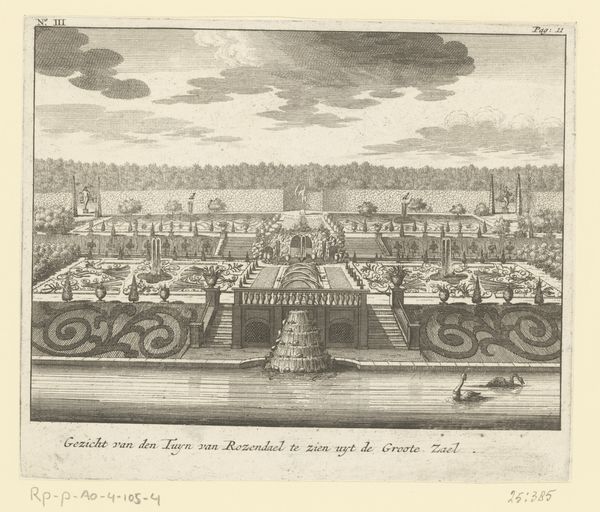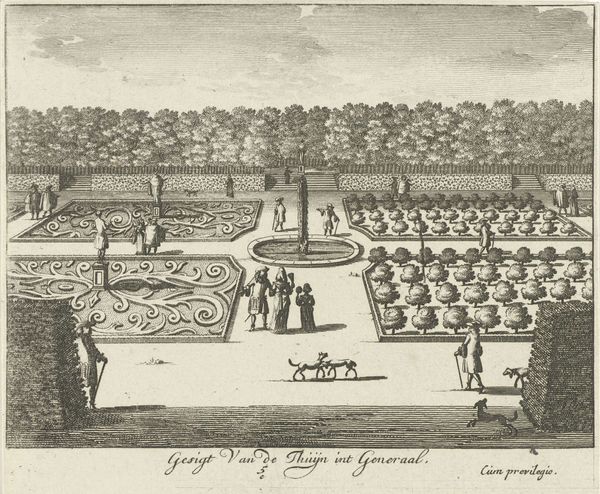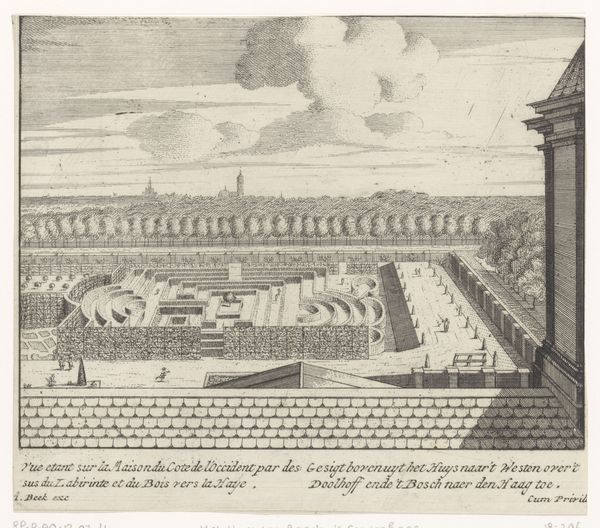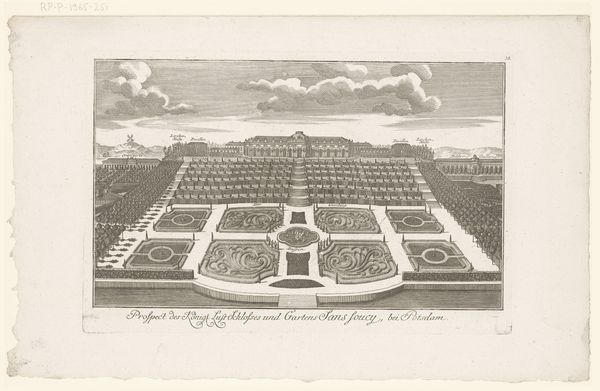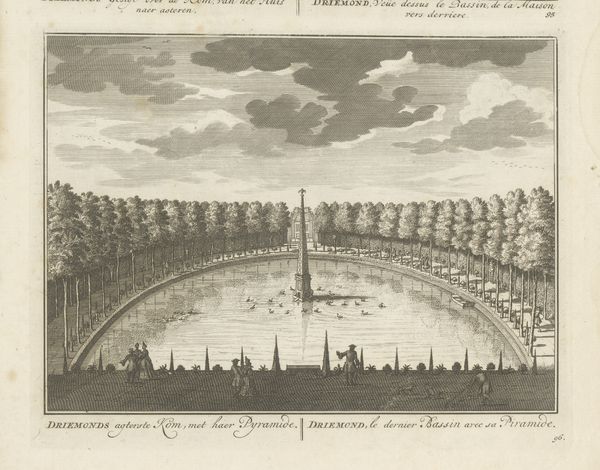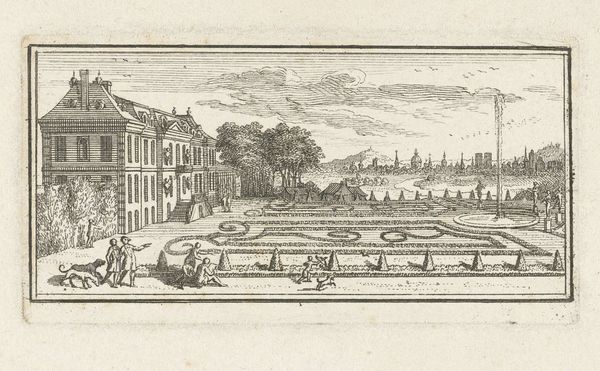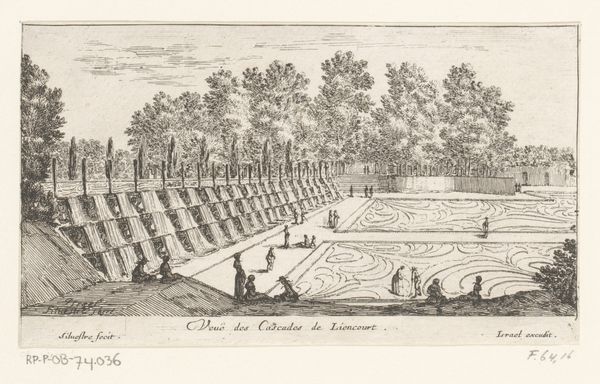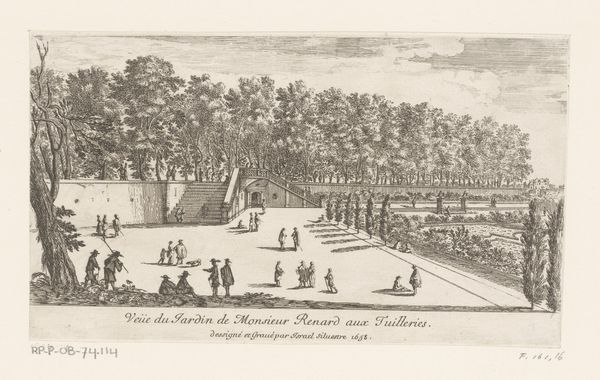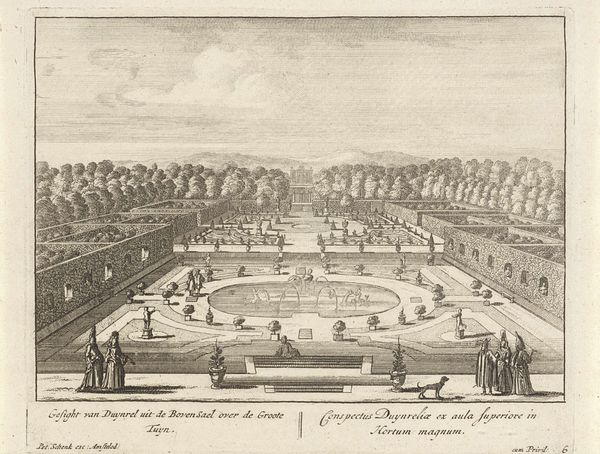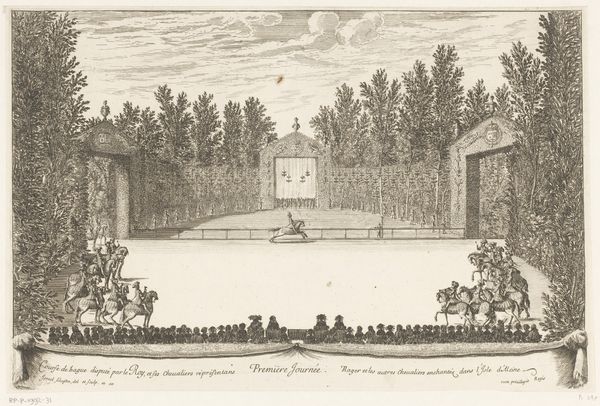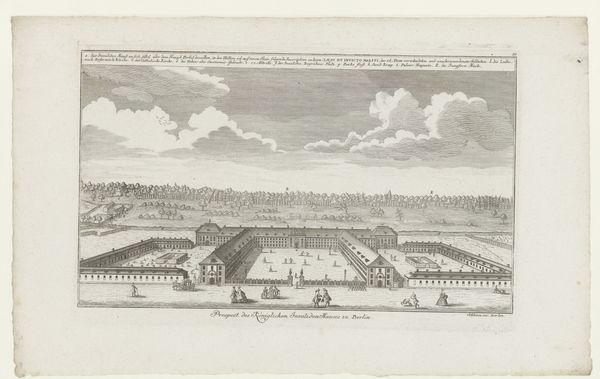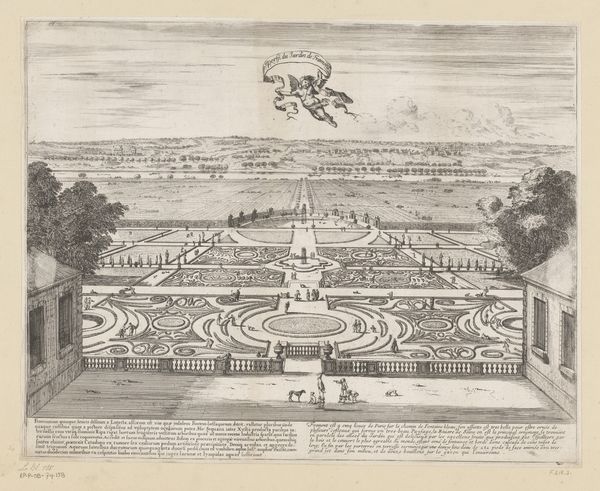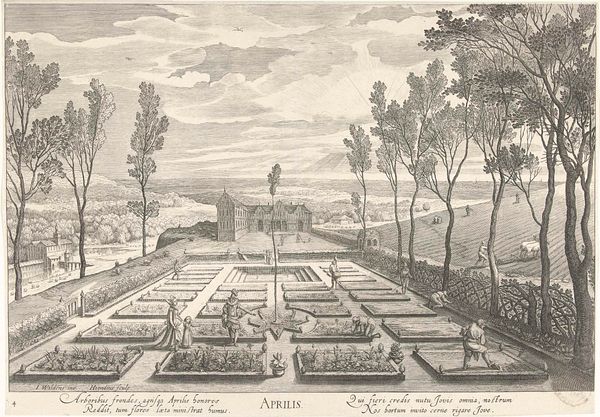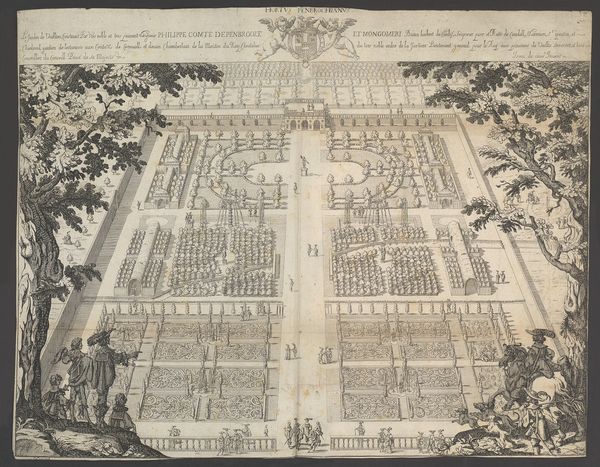
drawing, print, engraving
#
drawing
#
baroque
#
pen drawing
# print
#
landscape
#
engraving
Dimensions: height 132 mm, width 161 mm
Copyright: Rijks Museum: Open Domain
This is Hendrik de Leth’s engraving of the gardens at Soestdijk Palace. The dominant motif here is the garden itself, meticulously designed with swirling patterns reminiscent of acanthus leaves. These patterns are not merely decorative. They speak to the human desire to impose order on nature, a theme that echoes through art history, from ancient Roman frescoes to the gardens of Versailles. You see, the formal garden is a stage upon which power and intellect are displayed. Consider how the organic form is tamed, shaped into symmetrical designs. The spiraling forms of the garden may also remind us of the labyrinth, an ancient symbol of life's complexities. The labyrinth appears throughout history, a symbol passed down from classical myths to medieval cathedrals. What began as a representation of life’s intricate paths evolved into a reflection of psychological turmoil. These swirling patterns evoke a sense of both control and bewilderment, perhaps engaging with our subconscious understanding of the garden as a symbol of the psyche itself, a space where order and chaos coexist. This symbol of the garden has resurfaced, evolved, and taken on new meanings in different historical contexts.
Comments
No comments
Be the first to comment and join the conversation on the ultimate creative platform.
